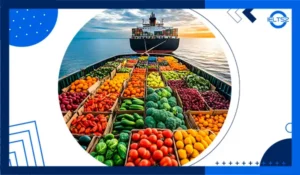مهم ترین لغات امتحان آیلتس موضوع اعتیاد
IELTS Vocabulary on the Topic of Addiction
لغات آیلتس موضوع اعتیاد را در این مطلب به همراه مثال و ترجمه فارسی بررسی خواهیم کرد. اعتیاد یکی از معضلات جدی جوامع امروزی است که به عنوان یک چالش بزرگ در زمینههای مختلف مانند سلامت عمومی، روانشناسی و حتی مسائل اجتماعی و اقتصادی شناخته میشود. در آزمون آیلتس، موضوع اعتیاد میتواند به عنوان یکی از مباحث مهم مطرح شود و به همین دلیل آشنایی با لغات مرتبط با این موضوع میتواند به شما کمک کند تا در بخشهای اسپیکینگ و رایتینگ بهتر عمل کنید.
در این مقاله، به بررسی لغات کلیدی مرتبط با موضوع اعتیاد پرداخته میشود و نمونههایی از استفادهی این لغات در جملات مختلف ارائه خواهد شد. همچنین، در پایان چند نمونه سوال پرتکرار اسپیکینگ آیلتس با موضوع اعتیاد و یک نمونه رایتینگ تسک 2 آیلتس در رابطه با این موضوع نوشته میشود. دانلود کتاب های گلچین لغات موضوعی آیلتس pdf پیشنهاد بعدی ما به شما عزیزان است.
لغات آکادمیک آیلتس در خصوص موضوع اعتیاد (Addiction)
در بخش رایتینگ و اسپیکینگ آیلتس، موضوعات اجتماعی مانند اعتیاد میتواند چالشبرانگیز باشد و به دانش وسیعی در مورد لغات و اصطلاحات نیاز داشته باشد. تسلط بر این لغات به شما این امکان را میدهد که به طور موثر و دقیق درباره موضوعات مهم بحث کنید.
واژگان کلیدی آیلتس برای موضوع اعتیاد
1. Addiction (اعتیاد)
تعریف: وابستگی جسمی یا روانی به یک ماده یا فعالیت که معمولاً ترک آن دشوار است.
مثال: “Addiction to drugs can ruin a person’s life and affect their physical and mental health.”
2. Substance Abuse (سوء مصرف مواد)
تعریف: استفاده نادرست و خطرناک از مواد مخدر یا الکل که منجر به مشکلات سلامتی میشود.
مثال: “Substance abuse can lead to serious health complications and social problems.”
3. Rehabilitation (بازتوانی)
تعریف: فرآیند درمان و بازیابی توانایی جسمی یا روانی فرد پس از اعتیاد یا آسیب.
مثال: “Rehabilitation centers provide support for individuals recovering from addiction.”
4. Withdrawal Symptoms (علائم ترک)
تعریف: نشانههایی که در نتیجه قطع ناگهانی مصرف یک ماده اعتیادآور در فرد ایجاد میشود.
مثال: “People who quit smoking may experience withdrawal symptoms like irritability and anxiety.”
5. Detoxification (سمزدایی)
تعریف: فرآیند حذف مواد سمی یا مضر از بدن، معمولاً به عنوان اولین مرحله از ترک اعتیاد.
مثال: “Detoxification is often the first step in treating addiction to drugs or alcohol.”
6. Relapse (عود اعتیاد)
تعریف: بازگشت به مصرف مواد یا رفتارهای اعتیادآور پس از یک دوره ترک.
مثال: “Many addicts experience relapse during their recovery journey, but it is important to keep trying.”
7. Craving (ویار/میل شدید)
تعریف: احساس شدید و ناگهانی برای مصرف مواد یا انجام فعالیتی که فرد به آن معتاد است.
مثال: “Cravings for nicotine can be difficult to overcome for those trying to quit smoking.”
8. Counseling (مشاوره)
تعریف: فرآیند ارائه مشاوره و راهنمایی به فرد برای مقابله با مشکلات روانی یا اجتماعی، از جمله اعتیاد.
مثال: “Counseling is a crucial part of the recovery process for individuals dealing with addiction.”
9. Overdose (مصرف بیش از حد)
تعریف: مصرف بیش از اندازه مواد مخدر یا دارو که میتواند منجر به مسمومیت یا مرگ شود.
مثال: “An overdose of opioids can lead to respiratory failure and death.”
10. Dependency (وابستگی)
تعریف: نیاز شدید به مصرف یک ماده که به علت مصرف مداوم آن ایجاد میشود.
مثال: “Physical dependency on drugs often requires medical intervention for recovery.”
11. Intervention (مداخله)
تعریف: اقدام به موقع برای کمک به فردی که به مواد مخدر یا الکل وابسته است.
مثال: “Family interventions can be effective in convincing an addict to seek help.”
12. Peer Pressure (فشار همسالان)
تعریف: تأثیر همسالان یا دوستان بر تصمیمگیریهای فرد که ممکن است منجر به سوء مصرف مواد شود.
مثال: “Many young people start using drugs due to peer pressure from their friends.”
13. Harm Reduction (کاهش آسیب)
تعریف: استراتژیهایی که برای کاهش اثرات منفی سوء مصرف مواد بر افراد و جامعه استفاده میشود.
مثال: “Harm reduction programs aim to reduce the health risks associated with drug use.”
14. Compulsive Behavior (رفتارهای وسواسی)
تعریف: انجام مکرر و غیرقابلکنترل یک رفتار که معمولاً برای کاهش اضطراب یا ناراحتی انجام میشود.
مثال: “Addiction often leads to compulsive behavior, where the individual cannot stop despite negative consequences.”
15. Self-medication (خود درمانی)
تعریف: استفاده از داروها یا مواد مخدر بدون تجویز پزشک برای مقابله با مشکلات روحی یا جسمی.
مثال: “Some people turn to self-medication with alcohol or drugs to cope with stress or anxiety.”
استفاده از واژگان تاپیک اعتیاد در رایتینگ و اسپیکینگ آیلتس
استفاده از واژگان تخصصی و مناسب در بخشهای مختلف آزمون آیلتس میتواند نمره شما را به طور قابل توجهی افزایش دهد. برای مثال، در یک سوال رایتینگ در رابطه با چالشهای اجتماعی مانند اعتیاد، شما میتوانید از این واژگان برای توضیح دقیقتر و بهتر نظرات خود استفاده کنید.
سوالات پرتکرار اسپیکینگ آیلتس برای موضوع اعتیاد
- Why do you think some people become addicted to substances like drugs or alcohol?
پاسخ: “I believe that people become addicted to substances for a variety of reasons. Some individuals may turn to drugs or alcohol as a way to escape from stress or trauma, while others may be influenced by peer pressure or a desire to fit in with a certain group. Additionally, certain genetic or psychological factors can make a person more susceptible to addiction.” - What are the most effective ways to prevent addiction?
پاسخ: “Preventing addiction requires a combination of education, support, and early intervention. Schools and communities should educate young people about the dangers of substance abuse, while families and friends can provide emotional support to those at risk. Early intervention, such as counseling, can help individuals address underlying issues before they develop into full-blown addiction.” - Do you think addiction is more of a social problem or a medical issue?
پاسخ: “I believe addiction is both a social and a medical issue. While it is important to address the social factors that contribute to addiction, such as poverty or peer pressure, it is also essential to treat addiction as a medical condition that requires professional intervention and treatment.” - What role should governments play in combating addiction?
پاسخ: “Governments should play a significant role in combating addiction by providing access to treatment programs, supporting harm reduction initiatives, and regulating substances that are prone to abuse. They should also focus on educating the public about the dangers of addiction and providing resources for individuals seeking help.”
نمونه رایتینگ تسک 2 آیلتس برای موضوع اعتیاد
Some people believe that addiction is a social issue, while others argue that it is a medical condition. Discuss both views and give your own opinion.
Addiction is a growing concern in many societies, with far-reaching consequences for both individuals and communities. While some people view addiction primarily as a social issue, others argue that it is a medical condition that requires treatment. In this essay, I will examine both perspectives and provide my opinion on the matter.
On the one hand, proponents of the social view of addiction argue that social and environmental factors play a significant role in its development. For instance, individuals who grow up in impoverished neighborhoods or unstable family environments are more likely to turn to drugs or alcohol as a means of coping with stress. Similarly, peer pressure, especially among young people, can lead to experimentation with substances, eventually resulting in addiction. From this perspective, addressing addiction requires social interventions such as education, community support, and addressing the root causes of poverty and inequality.
On the other hand, those who see addiction as a medical condition emphasize the biological and psychological factors involved. They argue that addiction alters brain chemistry and creates a physical dependency on the substance, making it difficult for individuals to quit without medical intervention. Furthermore, genetic predispositions and mental health disorders can increase an individual’s susceptibility to addiction. This perspective suggests that addiction should be treated like any other medical condition, with professional treatment, therapy, and medications designed to help individuals overcome their dependency.
In my opinion, both perspectives are valid and should be considered when addressing addiction. While social factors such
are undoubtedly important in understanding why individuals become addicted, it is equally essential to recognize the medical aspects of addiction. Addiction is not merely a result of poor choices or social pressure; it is a complex condition that involves changes in the brain’s chemistry and functioning. Therefore, treatment should not only focus on social support but also include medical interventions such as counseling, behavioral therapies, and, when necessary, medications to manage withdrawal symptoms and cravings.
For instance, many rehabilitation programs now offer a combination of psychological counseling and medical treatments to address both the mental and physical aspects of addiction. This holistic approach has proven to be more effective than focusing solely on social factors. Additionally, early medical intervention can prevent the development of severe addiction and reduce the likelihood of relapse, which is common among individuals recovering from substance abuse.
However, it is also essential to consider the broader societal impact of addiction. Governments and communities have a responsibility to create environments that reduce the risk of addiction. For example, providing education about the dangers of drug and alcohol use in schools, implementing harm reduction programs, and creating support systems for those at risk of addiction are crucial steps in preventing substance abuse. Additionally, tackling issues such as unemployment, poverty, and mental health stigma can address some of the root causes that lead people to addiction in the first place.
In conclusion, addiction is both a social and medical issue, and addressing it effectively requires a comprehensive approach that includes both perspectives. While social interventions like education and support networks are essential, the medical aspect of addiction cannot be ignored. Governments, healthcare providers, and communities must work together to provide individuals with the tools and resources they need to overcome addiction and lead healthy, productive lives.
نتیجه گیری
چندین مورد از لغات آیلتس در خصوص موضوع اعتیاد همراه با مثال هایی برای پرتکرار ترین تاپیک های رایتینگ و اسپیکینگ آیلتس را با هم در این صفحه بررسی کردیم. این آموزش از یکی از سایت های آموزشی مرجع آیلتس را در همین زمینه به شما عزیزان پیشنهاد میکنیم. ضمنا هر سوالی برای شما مطرح هست با در بخش کامنت ها در همین صفحه یا در گروه آموزش رایگان آیلتس ما در تلگرام حتما مطرح بفرمایید ❤️






